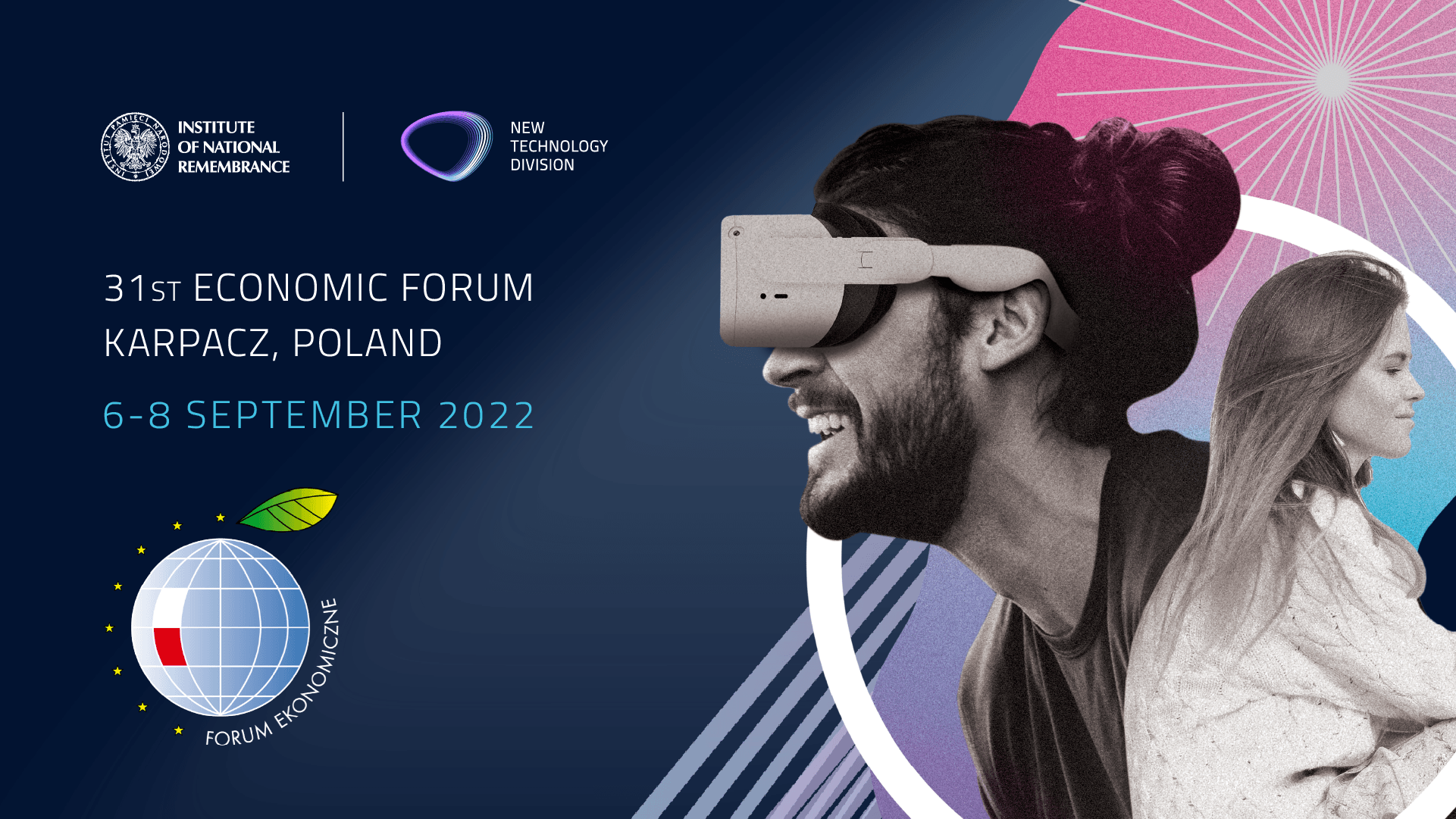New Technology Division of the Institute of National Remembrance (IPN) will take part in the 31st Economic Forum in Karpacz
Once again in September, Hotel Gołębiewski in Karpacz will become the centre of economic discussions for three days during the 31st Economic Forum under the motto “Europe facing new challenges”.
It will include over three hundred debates in which one thousand guests from Europe, the USA, and Central Asia will participate. The event will be attended by all those who decide on the future of the economy in Central Europe. They will discuss issues related to security, energy, innovation, new economy,
and sustainable development. Over thirty years of its existence, the Economic Forum has become the platform for the most important meetings of the political and business elite in Europe for exchanging views and shaping the opinions of leaders.

This year’s edition promises to be very interesting, among other things, thanks to the presence of
the New Technology Division of the Institute of National Remembrance (IPN), which was established in 2021 and, since then, has been vigorously pursuing its mission. During the panel discussion dedicated to “Education of the future – towards new educational pathways”, which will take place on 8 September, it will present the results of the report “IMMERSION HISTORICAL EDUCATION – towards new educational pathways” on the educational needs of the younger generation and expectations about historical education, prepared under the auspices of the Ministry of Education and Science. The results of the study will be of great value to those who
want to better understand young people and who want not only to teach but also to impart knowledge that will promote further exploration and development.
During the panel discussion dedicated to “Education of the future – towards new educational pathways”, which will take place during the 31st Economic Forum in Karpacz, the New Technology Division of IPN will present the report entitled “IMMERSION HISTORICAL EDUCATION – towards new educational pathways”, prepared under the auspices of the Ministry of Education and Science.
The panel discussion will be led by Mr Andrzej Horoch, founder of Workroom Technologies. A number of distinguished guests will participate in the debate, e.g. : Justyna Orłowska – Plenipotentiary of the Prime
Minister for GovTech, Prof. Jan Pomorski – Head of the Department of Digital Humanities and Methodology of History at the Maria Curie-Skłodowska University, Wojciech Janek – Deputy Director of the Centre for the Development of Creative Industries, and Magdalena Hajduk – Director of the New Technology Division of IPN.
The meeting that brings together so many scientists provides an excellent opportunity to discuss new educational solutions
that combine the real and digital worlds, as well as education and play. Answers must be sought to questions: how to design historical education processes and motivate young people to learn and then how to maintain that motivation and passion. The demands and expectations of younger generations may change in the world of digital revolution, and one of the biggest challenges of modern education is to be able to respond to their needs. Rapid technological progress facilitates many areas of life, but it can also lead to conflicts between generations, which in turn can cause ageism, i.e. create harmful stereotypes. The findings of the Report clearly indicate the need to design new educational pathways. The new model should be one of openness and engagement, in which the learner and the teacher are active parties in the exchange of knowledge.
Answers to questions bothering educators and teachers can be found in the in-depth analysis carried out in the Report. It contains the results of the quantitative study conducted on
a group of 855 representatives of Millennials and Generation Z and research workshops conducted with 20 representatives of Generation Z and Millennials coming from different cities and towns and attending different
educational facilities. The report also describes the conclusions drawn from the participatory observation of players carried out during the premiere of the “Cyphers Game”.


